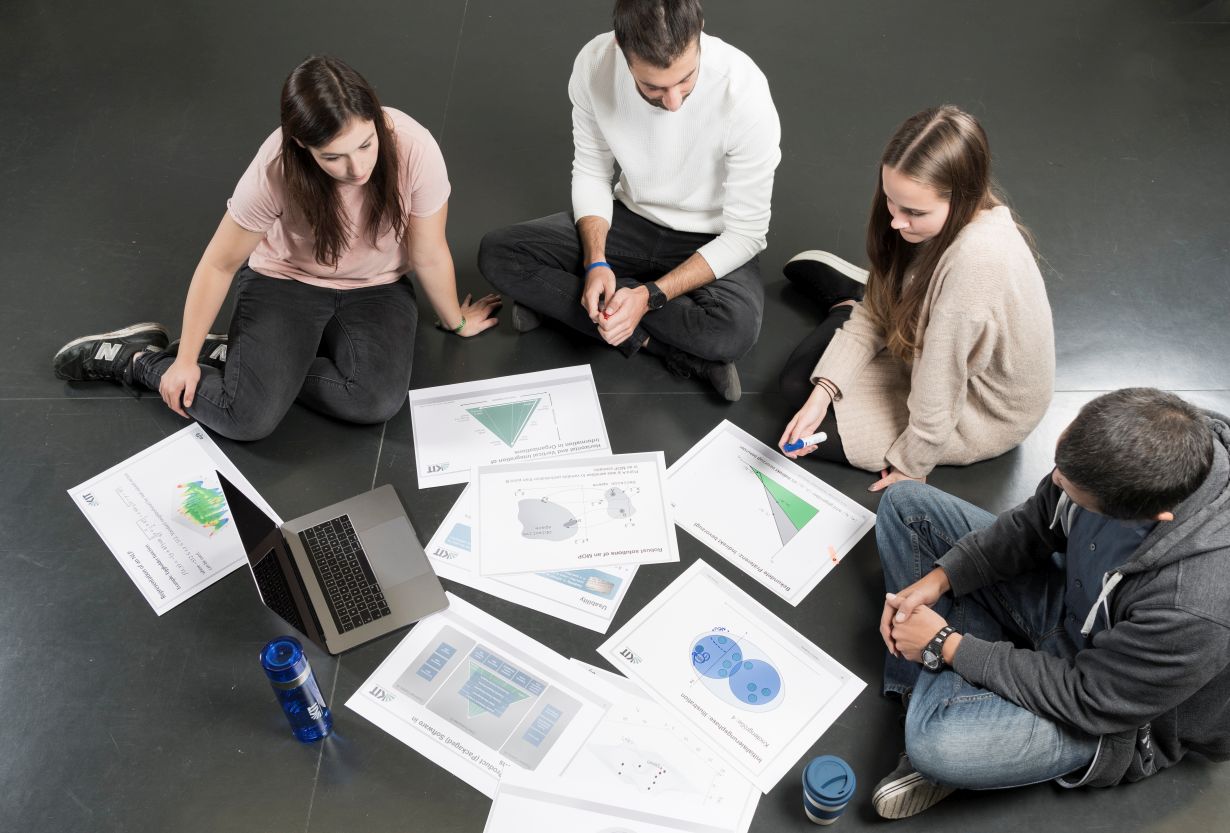
The new Biomedical Engineering Master's program held in English at Karlsruhe Institute of Technology (KIT) offers the combination of digitalization and automation in medical technology as well as practical application through cooperation with the Karlsruhe Municipal Hospital. It will start in the 2025/26 winter semester along with the three new bachelor's programs of Computational and Data Science, Liberal Arts and Sciences, and Applied Environmental Informatics and Earth Observation.
Automation and digitalization in healthcare and in the medical technology market are increasing rapidly. However, young skilled workers are lagging behind the rapidly growing demand for medical technology graduates. The new international Biomedical Engineering master's program at KIT focusing on digitalization and informatization of medical technology offers students suitable course content.
This includes the basics and applications of artificial intelligence and other data-based methods as well as processes for modeling and personalizing future diagnostic and therapeutic procedures. "With their degree, students can gain insight into technology-based, medical specialisms, analyze current problems, and develop innovative and pioneering solutions for medical technology," says Professor Werner Nahm from the Institute of Biomedical Engineering at KIT.
The four-semester course is based on varied technical and scientific training in electrical engineering and information technology, computer science, mechatronics, and mechanical engineering. Students are free to choose their engineering and medical specializations from five focus areas - Biomedical Imaging and Signal Processing, Biomedical Robotics, Bioelectronic Materials and Interfaces, Medical Product Development, and Modeling and Simulation for Medicine. This allows students to build on their individual basic knowledge from different bachelor's programs.
Medical Application Know-how in the Municipal Hospital
In cooperation with the Karlsruhe Municipal Hospital (SKK), students will gain insight into the processes and medical requirements through various formats. During the "Medical Technology in the Clinic" internship, students will move between various departments, lecturers from the SKK will hold courses on medical subjects, and experts from the clinic and the medical technology industry will give a series of lectures. "The cooperation is a forward-looking step for our hospital and KIT - it combines academic teaching in medical technology with clinical practice, strengthens both institutions in the long term, and sends a strong signal for the future of healthcare in our region," says Markus Heming, Managing Director of Karlsruhe Hospital.
The cooperation between the clinic and KIT enables medical technology students to gain a diverse and practical insight into modern high-performance medicine with its everyday and complex logistical processes. "Our experts at Karlsruhe Hospital bring in their many years of experience with the cutting-edge medical technology systems and allow students to gain a first-hand glimpse into everyday clinical practice centered around technology. Together, we promote practice-oriented innovation and ensure the quality of education for future specialists," says Professor Uwe Spetzger, Director of the Clinic for Neurosurgery at Karlsruhe Hospital.
Interdisciplinary and Diverse
In addition to the master's program, three bachelor's programs will start at KIT in the 2025/26 winter semester. The Computational and Data Science course combines mathematics and computer science with natural sciences, engineering, and economics. This interdisciplinary character will qualify the graduates to combine mathematical models and their numerical simulation with methods of machine learning and artificial intelligence to solve complex application problems autonomously with the help of computers.
In the Liberal Arts and Sciences course, students will learn how to deal with various media in theory and practice, check facts, and recognize fake news. They will learn to think critically, handle figures and data, and evaluate methods of cooperation between science and society and the social consequences that the introduction of innovations can have.
The Applied Environmental Informatics and Earth Observation course teaches the basic principles of natural and computer sciences for exploring environmental processes. It focuses on identifying, modeling, and interpreting complex environmental systems using modern methods of earth observation, geoinformatics, and data analysis. The key study areas include mathematical/physical and geoscientific basics, environmental informatics, geodetic methods, and ecology. One focus is on the integration of digital tools to study climate, water, and landscape dynamics.
Being "The Research University in the Helmholtz Association", KIT creates and imparts knowledge for the society and the environment. It is the objective to make significant contributions to the global challenges in the fields of energy, mobility, and information. For this, about 10,000 employees cooperate in a broad range of disciplines in natural sciences, engineering sciences, economics, and the humanities and social sciences. KIT prepares its 22,800 students for responsible tasks in society, industry, and science by offering research-based study programs. Innovation efforts at KIT build a bridge between important scientific findings and their application for the benefit of society, economic prosperity, and the preservation of our natural basis of life. KIT is one of the German universities of excellence.
Being "The Research University in the Helmholtz Association", KIT creates and imparts knowledge for the society and the environment. It is the objective to make significant contributions to the global challenges in the fields of energy, mobility, and information. For this, about 10,000 employees cooperate in a broad range of disciplines in natural sciences, engineering sciences, economics, and the humanities and social sciences. KIT prepares its 22,800 students for responsible tasks in society, industry, and science by offering research-based study programs. Innovation efforts at KIT build a bridge between important scientific findings and their application for the benefit of society, economic prosperity, and the preservation of our natural basis of life. KIT is one of the German universities of excellence.






